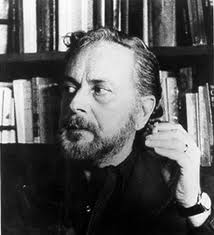Also known as:
Giannis Ritsos, Yannis Ritsos, Γιάννης Ρίτσος
More People of Greece
More Topic Categories
Related Destinations
Yiannis Ritsos (01/05/1909 - 11/11/1990)
 Yiannis Ritsos was a Greek poet, who wrote over one hundred collections and poems, nine novels, four theatrical plays and studies.
Yiannis Ritsos was a Greek poet, who wrote over one hundred collections and poems, nine novels, four theatrical plays and studies.He was born in 1909 in Monembasia, Lakonia. In 1919, he completed his primary education and in 1921, he enrolled at the high school of Gythion. His mother and his brother died the same year. In 1924, he published his first poems at the very popular magazine “Diaplasis ton Paidon” under the alias Ideal Vision. In 1925, he graduated from high school and went to Athens. There, he was forced to work as a typist and later as a copyist at the National Bank of Greece, because his father had suffered heavy financial losses. Next year, he returned to Monembasia, suffering from tuberculosis. Later that year, he enrolled at Law School of University of Athens, but he never managed to complete his degree studies. He became a librarian assistant and a scribe at the Lawyers Association of Athens.
In 1927, he was admitted to the Papadimitriou Clinic and later, the Sotiria Sanatorium, where he stayed for three years. In the Sanatorium, he met Maria Polydouri as well as intellectuals and Marxists of his time; he also wrote a number of songs which were published at the annex of the Great Greek Encyclopedia, which was created according to the standards of Encyclopedia Britannica. In 1930, he went to Chania and returned to Athens in 1931, in order to take the directorship of the art department of the Labour Club. His health steadily improved. In 1933, he worked at a left wing magazine, as well as in theatre for four years. In 1934, he became a member of the Greek Communist Party (KKE). Three years later, he was admitted to the sanatorium of Parnitha, while in 1938 he was hired at the Royal Theatre, and later, the Opera.
During World War II, he was confined to bed, but he tried to actively participate in the educational department of the Greek Liberation Army (EAM), and he refused to take any errand money when he almost died from hardship. In 1948, he was exiled to Lemnos because of his left wing beliefs and returned to Athens in 1952. He married two years later.
During the Regime of the Colonels, he was sent to exile again, before finally being under house arrest at his wife’s house because of health reasons. After the restoration of Democracy, he stayed in Athens and received multiple awards for his work. He was also nominated for the Nobel Prize in Literature in 1986. He died in 1990 and was buried at his birthplace. His poems are characterized by political thought, mainly pro – communist ideas, and had a unique way of writing with which he expressed his worldview.
See Also:
 Athens Photos
Athens Photos
 Santorini Photos
Santorini Photos
 Crete Photos
Crete Photos
 Meteora Photos
Meteora Photos
 Corfu Photos
Corfu Photos





